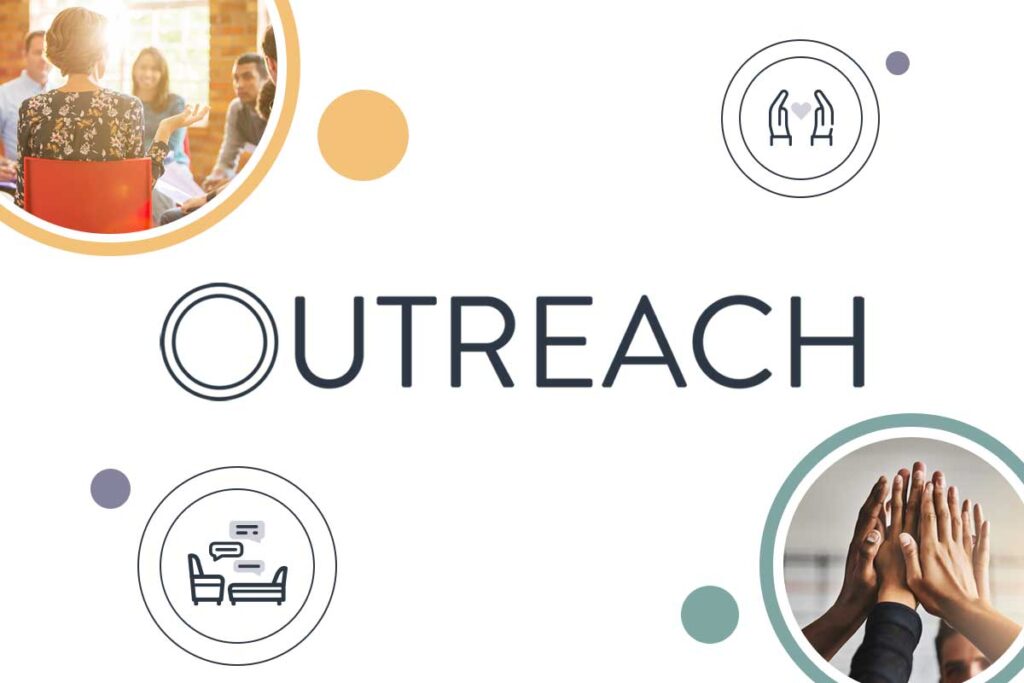Not everyone can take off weeks at a time for rehab, which is why outpatient treatment is an ideal alternative. Unlike residential rehab, outpatient addiction treatment centers give patients more flexibility and allow them to still attend work or school.
Outreach Recovery, which has outpatient addiction treatment centers throughout the Mid-Atlantic region, has helped many people successfully overcome drug and alcohol abuse. This quick guide explains what you can expect from outpatient substance abuse programs.
Types of outpatient addiction treatment programs
Before being admitted to an outpatient addiction treatment program, you will likely be assessed by the facility’s in-house physician, who will determine the best program for you. These are some of the most common programs:
Medication-assisted outpatient program
When a person suddenly stops taking a drug, this can cause serious withdrawals. Withdrawals are not only dangerous and uncomfortable, but they can cause a person to start abusing drugs again. This is one of the biggest challenges in overcoming addiction.
Outreach Recovery’s medication-assisted programs are very effective in helping people get through this crucial period. For example, when enrolled in a medication-assisted program for opioid addiction, patients are usually given a prescription for Suboxone. Suboxone is an FDA-approved medication that can fight addiction to heroin, painkillers, and other opioids.
This medication not only suppresses cravings and withdrawals, but it also blocks the effects of other opioids for at least 24 hours. It also doesn’t cause euphoria, so there is little-to-no potential for abuse. There are other medication options available, including injections and subdermal implants.
Outpatient day program
Day treatment programs play a major role in long-term recovery, especially when combined with a medication-assisted program. Like all outpatient treatments, day programs don’t require the patient to live on-site. Instead, patients usually attend one-on-one therapy sessions or group therapy at their treatment center 5 days per week.
Therapy sessions allow patients to address the deeper issues that may have caused their addiction. Therapy also helps patients develop healthy coping mechanisms that they can start applying in life. All of this is essential in preventing relapse.
Overall, outpatient day programs are great for those who need structure, and who are willing to make a serious time commitment every day for treatment sessions. After completing the program, patients usually keep up their sobriety with ongoing therapy or support group meetings.
Intensive outpatient program (IOP)
IOPs are similar to day programs, but they typically don’t require as many weekly sessions. Instead of having treatment sessions every weekday, patients may only be required to attend a few sessions per week. Treatment sessions usually include therapy, skill building, and developing relapse prevention techniques.
Like day programs, IOPs may also include medication-assisted treatment. Since they have a more flexible schedule, IOPs are ideal for people who still need to attend work or school every day, but who are motivated to take an active role in their recovery. Typically, these programs are also structured with defined milestones in place, which means the time commitment may decrease as progress is made.
Contact our outpatient addiction treatment center
If you or a loved one is ready to overcome substance abuse, Outreach Recovery can help. We have outpatient addiction treatment centers throughout the Mid-Atlantic region, including Maryland, New Jersey, Pennsylvania, Virginia, and Washington, D.C.
Contact us today to take the first steps toward sobriety.

